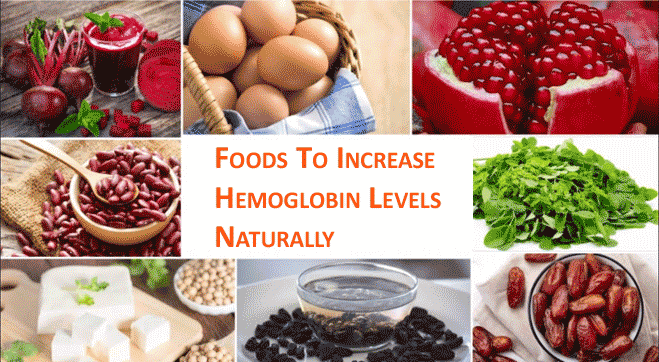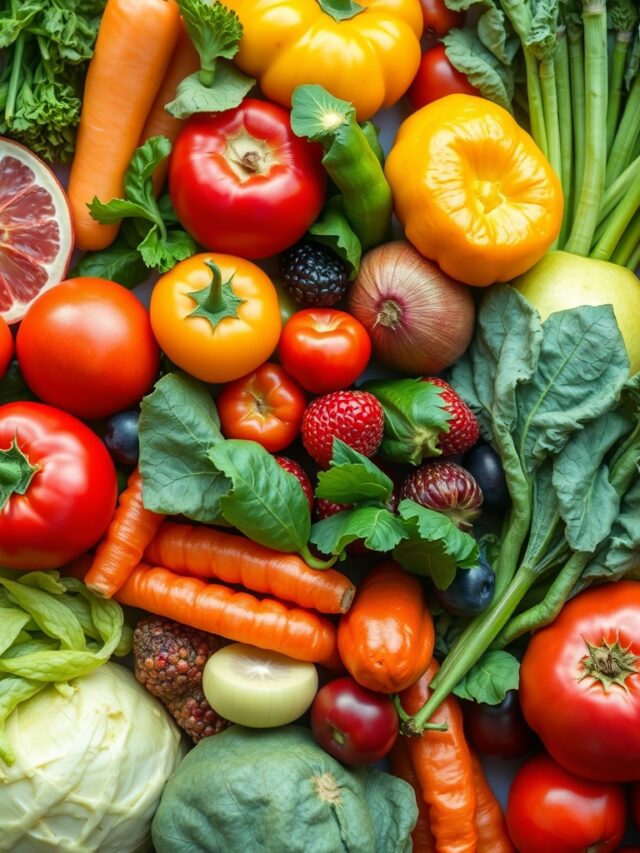Hemoglobin is an iron-rich protein present in red blood cells that is essential for transporting oxygen to all parts of your body. Optimum circulation of oxygen ensures proper functioning of bodily systems, which is crucial for survival. Low hemoglobin levels are a cause for concern and should be treated immediately by consuming the appropriate hemoglobin-rich foods to increase blood hemoglobin levels.

Before we delve into strategies on how to increase hemoglobin levels quickly, let’s first understand the significance of this protein. (If you are ready to start cooking immediately, check out our complete guide: 7-Day Meal Plan to Increase Hemoglobin Fast & Naturally – Non-Veg, Veg & Vegan.)
Why is Hemoglobin Necessary for Healthy Living?
The presence of iron in hemoglobin primarily aids in carrying and transporting oxygen to different parts of the body. Apart from this, it also expels carbon dioxide from the cells through the lungs. Without proper oxygen, your organs will not be able to function and may eventually shut down.
Once your hemoglobin levels fall below the designated ranges, you should consult a doctor immediately. Low hemoglobin levels result in Anemia, a deficiency of red blood cells in the body. The risk factors of anemia should not be ignored as they may lead to something serious. Therefore, it is advisable to explore ways to increase hemoglobin quickly, without delay. They include:
- Fatigue
- Dizziness
- Pale skin
- Brittle hair and nails
- Inflammation of the tongue

Hence, hemoglobin-rich foods offer a solution, helping to replenish the body’s oxygen supply and keep you feeling strong and vital.
Did you know:
- Heart failure is a serious complication that patients with severe anemia face. Failure to produce enough oxygen results in organ failure, primarily heart failure.
- In 2019, the worldwide occurrence of anemia among women of reproductive age stood at 29.9%, with 29.6% prevalence in non-pregnant women and 36.5% in pregnant women. Among children aged 6–59 months, the global prevalence of anemia was 39.8%, indicating a gradual decline from 48.0% in 2000 to 39.8% in 2019.
Source: NCBI
What is a Low Hemoglobin Count?
The normal range for hemoglobin can vary slightly depending on factors such as age, sex, and certain medical conditions.

- For adult men: below 13.5 g/dL is considered low.
- For adult women: below 12.0 g/dL is considered low.
When hemoglobin levels fall below the normal range, it can indicate anemia or another underlying health condition. Anemia is characterized by a decreased number of red blood cells or a reduced amount of hemoglobin, leading to decreased oxygen-carrying capacity. To understand the possible reasons behind this drop, you can explore Why Hemoglobin Is Low for common causes and effective remedies.
Symptoms may include:
- Fatigue
- Weakness
- Shortness of breath
- Pale skin
- Dizziness
- Irregular heartbeat
👉 Read More: Why an Anaemic Person Looks Pale and Tired
Best Foods to Increase Hemoglobin Naturally

Low hemoglobin levels can be effectively treated at home if addressed early. Ensuring a diet abundant in hemoglobin-rich foods is crucial for maintaining optimal health, especially for individuals prone to or experiencing anemia or low iron levels.
You can also get a routine complete blood test at home done to check your hemoglobin levels.
Read on to find out how to increase hemoglobin in a week or two through these natural ways:
Focus on an Iron-Rich Diet
The best way to increase your hemoglobin levels is to consume foods rich in iron. Iron assists in the production of hemoglobin and is therefore essential.
Best foods to increase hemoglobin naturally:
- Leafy vegetables like kale, spinach, moringa leaves (rich in B12, folic acid, and fiber)
- Red fruits like beetroot, carrots, pomegranate, and watermelon (rich in iron and magnesium)
- Dry fruits such as dates, figs, apricots, raisins, and nuts
- Meat, fish, and eggs
- Citrus foods like oranges, lemons, and berries (Vitamin C aids iron absorption)
Know More: 10 Vegetarian Vitamin B12 Sources: Essential for Health
Avoid Iron-Blocking Foods
If you are wondering what to drink to increase hemoglobin, you must be cautious.
While milk is healthy, soy milk acts as an iron blocker. Avoid or limit:
- Carbonated drinks
- Alcoholic beverages
- Soy products
- Caffeine
- Artificial sugar
- Excess calcium (interferes with iron absorption)
Dairy products should be consumed in moderation and under medical advice. To ensure you aren’t falling for other common misconceptions, check out our Top 5 Myths About Increasing Hemoglobin Explained.

Maximize Iron Absorption
Apart from consuming iron-rich foods, you can increase your iron absorption in different ways:
- Cook food in iron utensils
- Consume Vitamin C-rich foods
- Avoid calcium supplements

Increase Folate Intake
Folate (Vitamin B9) helps produce heme, a component of hemoglobin in red blood cells.
A folate deficiency leads to abnormally large red blood cells that cannot function properly—another form of anemia.
Folate-rich foods include:
- Legumes: lentils, chickpeas, beans
- Asparagus
- Eggs
- Dark green leafy vegetables: spinach, kale, broccoli
- Beets
- Citrus fruits: oranges, lemons, strawberries
- Brussels sprouts
- Broccoli

Folate can also be supplemented if recommended by your doctor.
Source: Harvard Nutrition Source
Include Iron Supplements
For pregnant women, the best way to increase hemoglobin is to take prescribed iron supplements, as pregnancy increases iron demand.
Supplements are also recommended for those with severe iron deficiency or anemia. Always consult your doctor for the correct dosage and type.
Did you know:
Regular physical activity helps boost oxygen in your body by producing more hemoglobin.
Moderate-intensity workouts can help maintain healthy hemoglobin levels.
Fruits To Increase Hemoglobin
Certain fruits are high in iron, Vitamin C, and other compounds that support hemoglobin production.

Best fruits to increase hemoglobin quickly and naturally:
- Pomegranate – high in iron and Vitamin C (improves iron absorption)
- Apricots – dried apricots are great for hemoglobin levels
- Prunes – provide iron and other nutrients
- Figs – rich in iron and fiber
- Dates – high in iron and a good energy source
- Watermelon – contains iron and supports hydration
- Citrus fruits (e.g., oranges) – Vitamin C enhances iron absorption
- Strawberries – high in Vitamin C and iron
Remember: A balanced diet including these foods ensures optimal nutrient intake.
If you notice a significant issue with your hemoglobin levels, consult a healthcare provider for personalized guidance.
A Note From HealthcareOnTime
Boosting hemoglobin levels is critical for overall health and efficient oxygen transport. You can increase hemoglobin naturally by making lifestyle changes and adopting nutrient-rich diets.

Explore hemoglobin dietary sources and improve iron absorption with foods such as:
- Liver
- Leafy greens
- Fortified cereals
By doing so, you can maintain optimal hemoglobin levels and live a more energetic life.
If you suspect low hemoglobin levels or wish to monitor them regularly, consider booking a hemoglobin test at home from HealthcareOnTime, a trusted Thyrocare partner.
With their convenient at-home lab testing services, you can ensure timely and hassle-free monitoring of your health.










